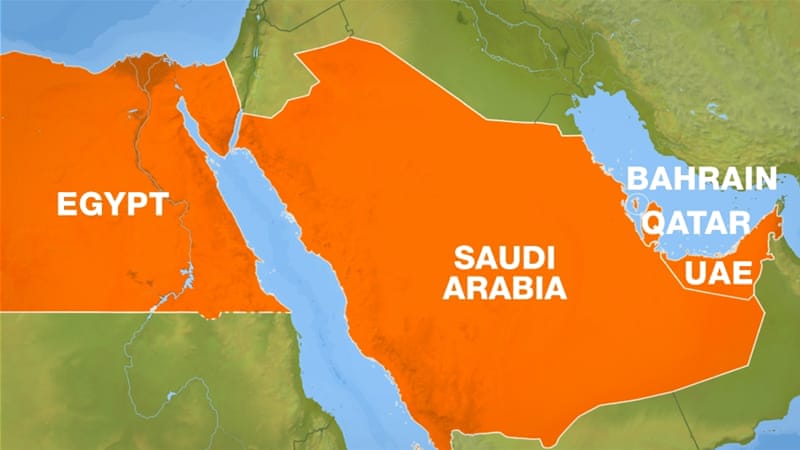
Three things can be said about the extraordinary action taken this week against Qatar by Saudi Arabia, the UAE and Bahrain.
The confrontation — which has been brewing for more than two decades and involves dozens of points of friction — was inescapable.
Qatar can’t afford for it to last beyond the summer.
And, third, Saudi Arabia will emerge as the winner.
Doha’s differences with Riyadh originated in 1913 when the Ottoman and British empires created spheres of influence in Arabia. Qatar and the Trucial Gulf states which became the UAE were placed under London’s effective control. This was formalised in an exclusive agreement between the Al-Thani clan and Britain in November 1916.
This was a snub to the Al-Saud clan which claimed the allegiance of tribes living in the Qatar peninsula at the end of the 18th century and is connected to the people of the region through shared religious perspectives, kinship and commerce. In 1935, Saudi Arabia laid claim to much of the Qatar peninsula and territorial issues rumbled on until the early 1990s.
The end of British protection of the lower Gulf Arab states in 1971 reopened questions about Qatar’s status and as well as Bahraini claims on Qatari territory that also can be traced to the late 18th century. Doha and Manama rejected the option of joining the UAE and chose separate independence instead. This was at least partly to allow them to assert territorial claims against each other. In the spring of 1986, they came close to all-out war about them.
For Abu Dhabi, the moment that redefined its relationship with Doha came in June 1995 when Qatar’s ruler Sheikh Khalifa was deposed in bloodless coup by his son Sheikh Hamad. Abu Dhabi supported Khalifa and backed an unsuccessful counter-coup attempt in February 1996. Under crown prince Sheikh Mohammed Bin Zayed, Abu Dhabi has replaced Doha as the US’ most reliable GCC strategic partner.
Dubai has fewer historic issues with Doha. Its ruler Sheikh Mohammed, UAE vice-president and prime minister, is related by marriage to the Al-Thani clan. Exceptionally pragmatic, Sheikh Mohammed has finally been convinced by Riyadh and Abu Dhabi that Qatar’s behaviour must be permanently contained.
But ultimate responsibility for the GCC crisis of 2017 rests with Qatar’s ruler Sheikh Tamim, who succeeded his father in June four years ago. He has failed to demonstrate Qatar had decisively broken with policies associated with Sheikh Hamad and former Qatar prime minister Sheikh Hamad Bin Jassim. There is more than a suspicion that both remain influential behind the scenes in Doha.
Riyadh wants this now to end.
A country the size of Jamaica with a national population which is probably less than 200,000 people can only survive with the support of the US, which President Trump has publicly disavowed, and the tolerance of powerful Arabian neighbours. This has now gone, even in Dubai.
Sheikh Tamim must make full amends to King Salman in particular. He must make unbreakable promises about everything the kingdom and its partners have raised. And he must do it soon. A deal is possible before the end of Eid al-Fitr.
And what then? Sheikh Tamim will be embraced by Saudi Arabia and its GCC allies. Superficially, life will return to normal. The FIFA World Cup will take place in 2022 as planned.
But Qatar will emerge as the principal loser from the great GCC schism of 2017.
And Saudi Arabia the main winner.